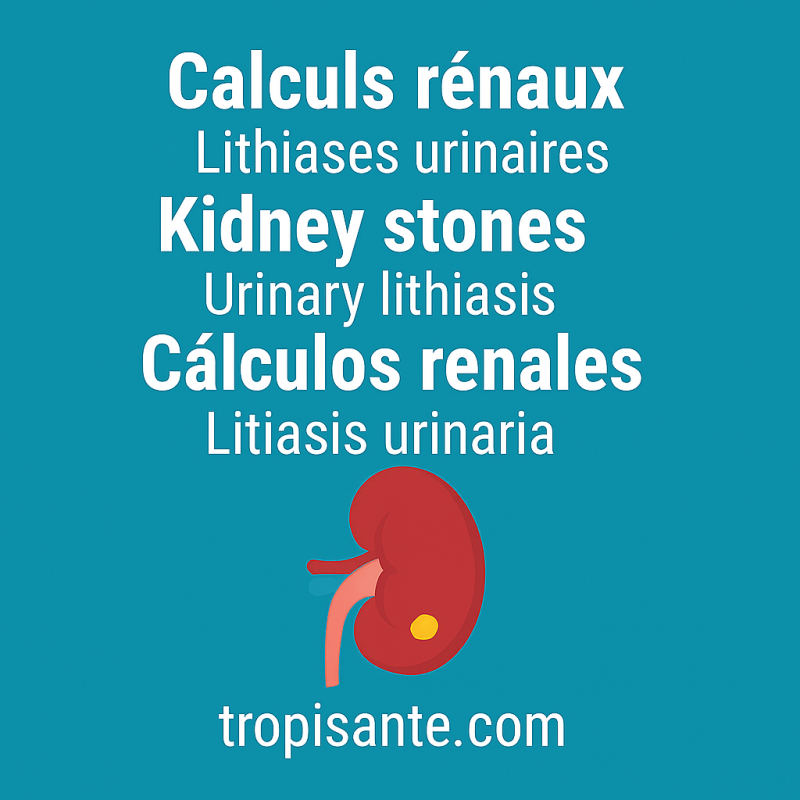KIDNEY STONES

Kidney Stones: Understanding, Preventing, and Relieving
g
Definition
Kidney stones are hard deposits formed from minerals and crystals in urine. They may remain silent or cause intense pain when moving through the urinary tract.
Common causes
-
Chronic dehydration
-
Excess salt, animal protein, or oxalate-rich foods (spinach, chocolate, black tea)
-
Family history of kidney stones
-
Certain metabolic diseases (hyperparathyroidism, gout)
Symptoms
-
Severe flank or back pain (renal colic)
-
Blood in urine (hematuria)
-
Frequent or painful urination
-
Nausea, vomiting
Diagnosis
-
Urine analysis (crystals, blood, infection)
-
Kidney ultrasound or CT scan
-
Abdominal X-ray in some cases
⚕️ Treatments and solutions – Medical options
-
Increased hydration (2–3 liters/day unless contraindicated)
-
Pain relief medications prescribed by a doctor
-
Drugs to facilitate stone passage (e.g. alpha-blockers)
-
Shock wave lithotripsy (breaking the stone into pieces)
-
Surgery for large or complicated stones
🪷 Complementary solutions and comfort
-
Stay hydrated with a reusable filtered water bottle 👉 https://www.amazon.com/dp/B01M7Z09LQ?tag=tropisante-21
-
Support urinary tract health with cranberry herbal teas 👉 https://www.amazon.com/dp/B00I9X6Y0Q?tag=tropisante-21
-
Learn more from the book “Nutrition and Kidney Health” 👉 https://www.amazon.com/dp/197480599X?tag=tropisante-21
-
Improve comfort with plant-based supplements 👉 https://www.amazon.com/dp/B01N9YOF6A?tag=tropisante-21
Prevention
-
Drink enough water daily
-
Limit salt and animal protein intake
-
Reduce oxalate-rich foods (spinach, cocoa, beets, nuts)
-
Avoid long-term self-medication
-
Maintain healthy weight and regular exercise
Conclusion
Kidney stones can be extremely painful but are often preventable. 🌿 Daily hydration and balanced nutrition are the keys to prevention.
LEGAL NOTICE
Tropisante participates in the Amazon EU Associates Program, an affiliate program designed to provide a means for websites to earn fees by linking to Amazon.fr.

